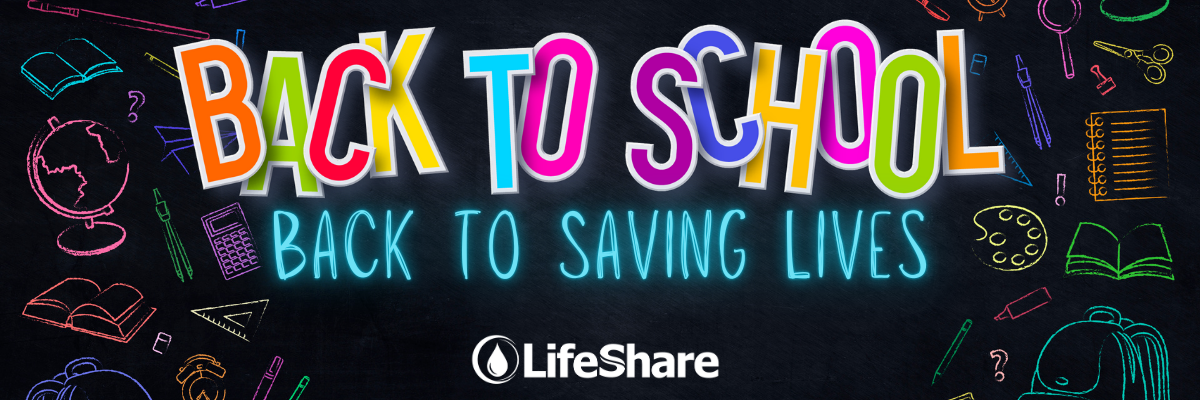The Vital Role of High School Blood Donors
As summer winds down and the school year gets back in full swing, high school students across our region are preparing for more than just classes, football games, and homecoming dances—they’re preparing to save lives. At LifeShare Blood Center, we know the impact high school blood donors make is nothing short of extraordinary.
Each year, nearly 20% of the blood we collect comes from high school donors. That’s thousands of pints of blood helping patients in local hospitals—patients fighting cancer, recovering from surgery, or facing traumatic injuries. Your donation doesn’t just make a difference, it can save up to three lives!
Who Can Donate?
If you’re 16 years or older, weigh at least 110 pounds, and are in good health, you’re likely eligible to donate. Most people can give blood even if they’re taking medication, have diabetes, or are cancer survivors.
For 16-year-olds, a parent or guardian must complete a Minor Donor Permit before donating. This simple step ensures young donors can begin making a difference as soon as they’re eligible.
Donating blood is an easy way to show school pride while making a lasting impact on your community. More importantly, starting young builds a lifelong commitment to service and helping others.
Why High School Blood Drives Matter
Blood drives hosted at high schools aren’t just convenient—they’re crucial. They:
- Introduce young donors to the importance of giving blood.
- Keep local hospitals stocked with a safe and steady supply.
- Build a culture of compassion and service in the next generation.
When you give blood through your school, you’re doing more than helping strangers; you’re giving back to your neighbors, classmates, and family members who may one day need that same lifesaving gift.
Bonus Points: Saving Lives Comes with Rewards
LifeShare’s LifeScholar Program celebrates high school students who step up to the challenge of saving lives. This program not only honors student donors but also benefits schools directly:
- Recognition & Rewards – Students earn a LifeScholar certificate and, with enough donations, the prestigious Honor Cord to wear at graduation.*
- School Grants – Participating schools receive grant funds based on student donations, which can be used at the school’s discretion. Oftentimes these funds are awarded as scholarships.
- Community Service Credit – Blood donations can count toward service hour requirements for graduation or club involvement.**
- Fun Perks – You get snacks, merchandise, and the satisfaction of knowing you’ve saved lives—plus, you get to miss class for a great cause!
How to Earn Your Honor Cord:
- Log 6 whole blood donations (or 3 double red cell ALYX donations) between your 16th birthday and the deadline before graduation.
- Or serve at least two years on your school’s blood drive program committee (if applicable).
- Can’t donate? You can still participate by having a proxy donate on your behalf. Multiple people can donate for you, as long as they mention your name and school.
*Each school or district gets the final say on whether you can rock these honor cords at graduation. Either way, you’ll still get one—it’s yours to keep, and they look awesome in photos.
**Your school calls the shots on whether your blood donation counts for community service credits. Still, giving blood is always a win—it saves lies, and that’s credit that counts everywhere.
Be Part of Something Bigger
This school year, whether you’re rolling up your sleeve for the first time or working toward your Honor Cord, know that every drop you give matters. LifeShare Blood Center is proud to partner with schools to empower students to save lives and make a difference.
